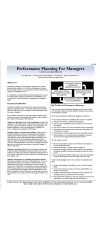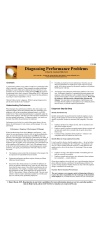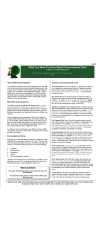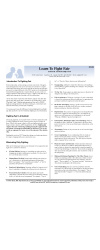Be prepared for the weird, wonderful and humbling experiences in graduate school
Congratulations. You finished your first degree, most probably with distinction. You chose the best graduate school to attend, and WOW, they accepted you.
So now what? Prepare for a humbling experience.
From Top of the Heap Back To Bottom
Can you remember your first year of high school? How about the last year? Which was most stressful and anxiety provoking? You went from the top of the heap in elementary school — the oldest, coolest, more experienced and maybe popular to being a FRESHMAN, where there a lot more older, cooler, more experienced and popular kids,
All of a sudden more was expected of you academically and behaviorally.
The same thing applies to going to college as an undergraduate. You moved from final high school grade to first year university, and thus, once again, sat at the bottom age-wise, experience-wise, and skill-wise.
And now that you are in graduate school, whoops, you are back at the bottom, but this time as an adult. It’s going to be humbling.
Is Humbling Graduate Students Intentional?
No, not in most cases, although there is this strange view that somehow, graduate students need to be more motivated than they already are, so they will work harder. Some professors and even schools can work that way.
Generally though, the humbling experience is caused by a number of factors in the graduate education environment:
- There will always be peers who appear way smarter and skilled than you. Graduate schools can pick and choose the best students, which means that the bar in the classroom is set way higher than in undergraduate. (see story at the bottom of this page).
- Professors are smarter too. While there are certainly poor graduate school professors; in fact far too many, it’s also the case that you’ll find the elite of the elite teaching in fine graduate schools. They can be awe inspiring, even intimidating simply by their intellectual prowess and ability to understand their specializations at a level it seems will be impossible for you to ever achieve.
- Expectations are higher. There is a huge jump in where the bar is set in graduate school. Not only are you expected to ingest huge amounts of content (articles, books, etc), but you are also expected to understand it, analyse it, critique it, and synthesize ideas — even create new ones.
- You aren’t going to get a lot of general hand holding from professors, except, hopefully for your academic advisor. The expectation is that you will be a self-directed learner far more than was the case ever before in your life.
- As a result, you are going to feel stupid and inadequate, if not all the time certainly some of the time. You are going to question your own capabilities, and wonder if you should have entered the school in the first place.
- …and it’s all normal, although the irony is that most of your co-students are also feeling exactly the same things, but nobody talks about it.
Coping Strategies To Handle The Sense of Inadequacy in Grad School
- Cultivate A Strong Relationship With At Least One Professor. Fortunately you will probably find or be assigned a faculty advisor. That person is the most important one in your graduate school life, so make sure you check out your options. You don’t necessarily have to stick with the first advisor, so spend some time meeting other professors in your faculty. Make sure your advisor has similar academic and research interests as yourself.
- Once you’ve got an advisor, invest in the relationship. Learn about his or her work. Maybe ask other students working with that advisor what it’s like. Respect your advisors time, but keep in contact as much as you can. ask questions. LISTEN. You don’t necessarily need to do what you are told, but you need to have good, thought out reasons if you ignore your advisor/supervisor’s suggestions.
- Stay Actively Contributing In Classes. There’s a tendency, when intimidated to keep quiet in class, particularly since everyone there seems to really understand the subject at hand. Apart from losing valuable opportunities to receive feedback from professor and peers, it makes you more of an unknown quantity.
- In graduate school, class sizes can be quite small, so there’s no place to hide, and you will be expected to present, and be active in seminars that are part of the class.
- Give it a shot. You can be wrong, and learn from being wrong. That’s kind of the point of grad school anyway.
- Hang Out. What happens in the classroom is important, but a tremendous amount of learning comes from time spent informally with other students, and professors. Take part in after class opportunities as they come up — going for coffee with fellow students, or the bar. Lunch with people. Spend time socializing, because the more you get to know people, whether students or professors, the less intimidating they will be (usually). Plus, you’ll have a handy support system of peers.
- Organize and Don’t Procrastinate. Excuses for not doing assignments are even less welcome at the graduate level. You need to organize your time, prioritize your tasks, and make use of every minute that’s available to you.
Concluding With A Story About Grad School Intimidation
Always keep in mind that being freaked out and feeling inadequate is more the rule than the exception. It’s just that your peers, while all feeling inadequate, simply aren’t sharing it. They look confident. Comfortable. In control and on top of their tasks. That’s just the outside. Inside they are probably experiencing things just like you.
There were about 17 people admitted to my M.A. graduate program, and while not all were brilliant (many were) all were easily more competent than most people I knew in undergrad.
Bob and I ended up as office mates and became friends, often playing tennis or sharing a drink outside of the university setting. Some time in the second year he shocked me.
“You know, I just hated you when we started here. It always seemed like you had the right answer, and I always felt stupid beside you.”
“Huh”, I said.
“Yeah, I felt you were kind of grandstanding, and I felt like I was the only one in classes who didn’t grasp whatever we were talking about” , Bob answered.
“Well, shit, Bob. I can’t believe this. You know what? I felt exactly the same way about you, and actually most of the other students. I never thought I understood more than 10% of the concepts in a class.”
Bob replied: “Hmmm…what are the chances that every one of us felt that everyone else was smarter more competent?”
“Let’s go ask.” I replied.
So we did a little impromptu data gathering and went looking for peers. We asked. They all questioned their adequacy, and wondered whether they belonged because the felt over-matched.
Oh, by the way, many of those folks went on to become researchers, leading practitioners and professors themselves.
Footnote: Bob later went on to plagiarize one of my papers. Go figure. I guess he never got over his sense of being overwhelmed.






